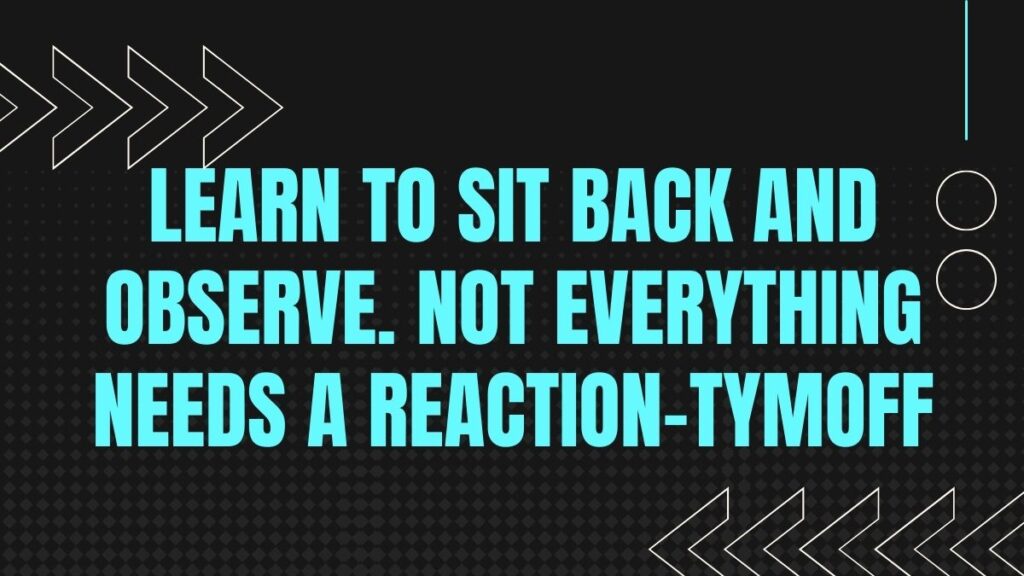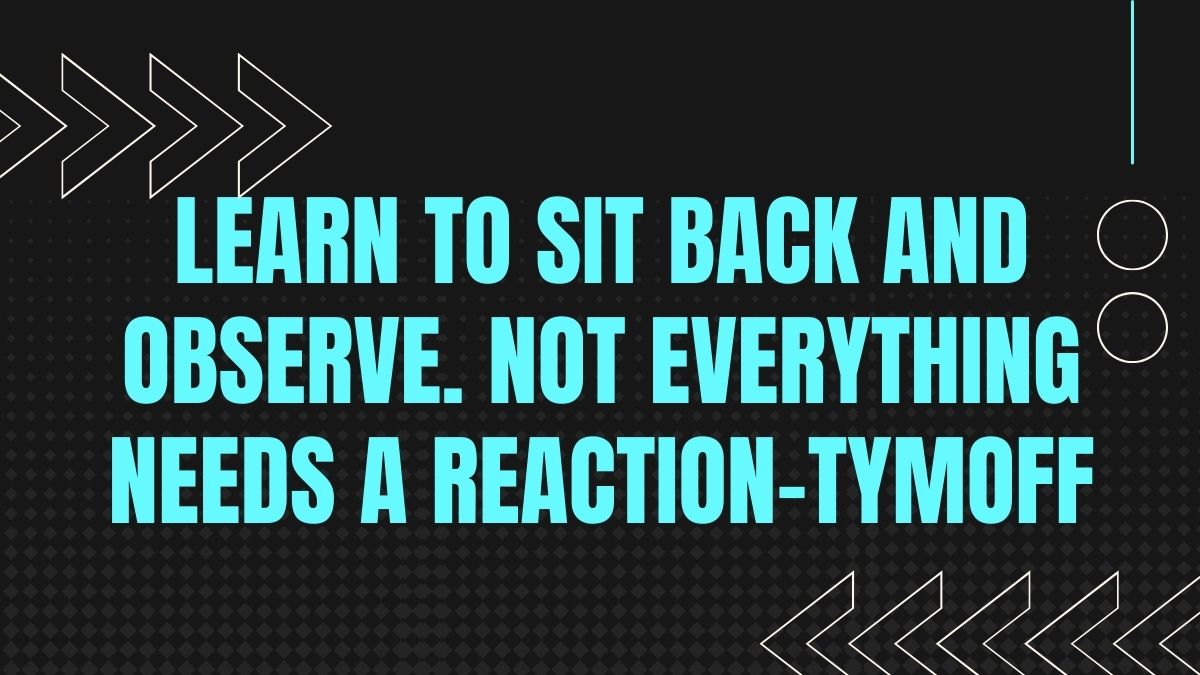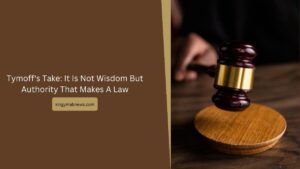In today’s fast-paced and hyper connected world, the impulse to react swiftly and decisively
often feels like second nature. From social media debates to personal interactions, the pressure
to respond immediately can be overwhelming. However, amidst this clamor, there exists a
profound wisdom in the simple yet profound advice: "Learn to sit back and observe. Not
everything needs a reaction." This timeless wisdom, often attributed to Learn to sit back and
observe. Not everything needs a reaction Learn to sit back and observe. Not everything needs a reaction-TYMOFF, challenges us to reconsider our knee-jerk responses
and embrace the power of observation and contemplation.
The Impulse to React Learn to sit back and observe. Not everything needs a reaction-TYMOFF

In our digital age, where information travels at the speed of light and opinions are shared
instantaneously, the urge to react swiftly can be irresistible. Social media platforms amplify this
“lLearn to sit back and observe. Not everything needs a reaction-TYMOFF.
Not everything need reaction”, where posts and comments
provoke immediate responses, often without careful consideration of their implications. This
reactive culture can escalate conflicts; perpetuate misunderstandings, and obscure meaningful
dialogue Learn to sit back and observe. Not everything needs a reaction-TYMOFF.
The Power of Observation
Contrary to the reactive mindset, cultivating the art of observation offers a pathway to greater
clarity, insight, and understanding. Learn to sit back and observe. Not everything needs a reaction- Learn to sit back and observe. Not everything needs a reaction-TYMOFF
involves stepping back from immediate
emotional responses and taking the time to discern underlying motivations, patterns, and
dynamics at play. It requires patience, attentiveness, and a willingness to suspend judgment
temporarily.
Learn to sit back and observe. Not everything needs a reaction-TYMOFF also allows us to appreciate the complexities of situations, acknowledging that not
everything is black and white but rather exists within shades of gray.
Practicing Mindful Observation
Mindful observation involves cultivating awareness of our thoughts, emotions, and
surroundings without immediately reacting to them. It encourages us to pause before
responding, allowing space for reflection and introspection. Techniques such as mindfulness
meditation, journaling, or simply taking a few moments of silence each day can help develop
this skill Learn to sit back and observe. Not everything needs a reaction-TYMOFF.
In interpersonal relationships, mindful observation enhances communication and conflict
resolution. By listening attentively and observing non-verbal cues, we validate others#39;
perspectives and foster meaningful connections based on mutual respect and understanding.
This approach promotes a culture of dialogue rather than debate, where differing viewpoints
are acknowledged and explored constructively.
Wisdom in Silence
Learn to sit back and observe. Not everything needs a reaction-TYMOFF Not everything needs reaction” underscores the value of silence as a powerful tool for reflection and discernment. In moments of uncertainty or conflict, choosing not to react immediately can be a strategic decision. Silence allows emotions to settle, perspectives to clarify, and intentions to align with values and principles. Silence does not imply passivity or indifference but rather a deliberate choice to respond thoughtfully rather than reactively. It empowers us to assert our agency over our words and actions, demonstrating restraint and wisdom in challenging situations. As the saying goes, Learn to sit back and observe. Not everything needs a reaction-TYMOFF.
Navigating Complexity
In a world characterized by complexity and ambiguity, the ability to sit back and observe offers
a valuable perspective. It encourages humility and openness to learning from diverse
experiences and viewpoints. By embracing curiosity and a willingness to explore different
perspectives, we enrich our understanding of the world and ourselves.
Moreover, observing allows us to discern when action is necessary and when it may be more
effective to refrain. It promotes strategic thinking and decision-making rooted in a broader
context of long-term consequences and ethical considerations.
Cultivating Emotional Intelligence
Observation contributes to emotional intelligence by fostering self-awareness and empathy.
When we observe our own reactions and emotions without immediate judgment, we develop
greater emotional resilience and self-control. This self-awareness extends to our interactions
with others, enabling us to respond empathetically and constructively to their needs and
concerns.
By practicing emotional intelligence, we create environments conducive to collaboration,
innovation, and personal growth. It enhances our ability to navigate interpersonal dynamics
with grace and authenticity, fostering trust and mutual respect in our relationships.
Embracing Continuous Learning
TYMOFF 's “learn to sit back and observe. Not everything needs reaction” invites us to embrace
a mindset of continuous learning and growth. Observing allows us to remain curious and
adaptable in the face of change, recognizing that knowledge and understanding evolve over
time. It encourages us to seek diverse perspectives, challenge assumptions, and embrace
uncertainty as an opportunity for discovery.
Conclusion for more informative articles
Learn to sit back and observe. Not everything needs a reaction-TYMOFF . Learn to sit back and observe. Not everything needs a reaction-TYMOFF
about human behavior and interpersonal dynamics. By cultivating the art of observation, we
enhance our ability to navigate complexity, build meaningful relationships, and make informed
decisions that align with our values and principles. In a world that often values immediacy and
assertiveness, embracing silence and thoughtful reflection can be a transformative practice,
fostering deeper connections and greater wisdom in our lives















+ There are no comments
Add yours